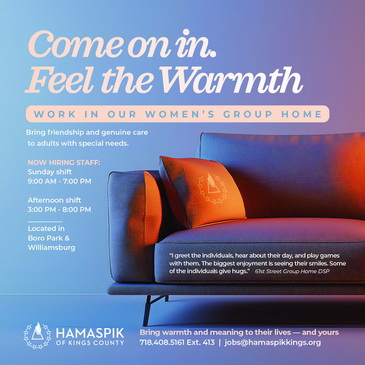“Oh,” breathed 6-year-old Ava, “a magic bracelet.”
Perhaps it was magic. The shiny bit of pretend jewelry brought Ava, who is autistic, a friend to share a lazy Saturday afternoon in Rancho Peñasquitos – someone who would play endless rounds of the board game Pretty Pretty Princess.
Children with Disabilities get Social Outlet
Poway, CA — “It’s not just a bracelet,” 12-year-old Sophie announced with great ceremony to the dark-haired girl across the table. “It’s a magic bracelet.”
“Oh,” breathed 6-year-old Ava, “a magic bracelet.”
Perhaps it was magic. The shiny bit of pretend jewelry brought Ava, who is autistic, a friend to share a lazy Saturday afternoon in Rancho Peñasquitos – someone who would play endless rounds of the board game Pretty Pretty Princess.
Friends are often rare for children like Ava, whose developmental disabilities can isolate them from kids their own age.
That’s where The Friendship Circle comes in. The Poway-based organization connects children like Ava Linneman, who wants someone to play with, with young volunteers like Sophie Zanders, who wants to help people.
“People have the wrong impression of these children; too often they think they look funny, they talk funny, so they must have a low IQ,” said Elisheva Green, a former teacher who runs the nonprofit organization. “Sometimes they are just locked inside their body and they just need someone who understands how to reach in.”
The Friendship Circle aims to be the social link that provides friends to children with disabilities. The group runs under the wing of Chabad of Poway, a Jewish temple and educational and social services organization.
“I’ve seen people transformed by this,” Chabad’s Rabbi Yisroel Goldstein said of the group.
In its first 18 months, Green said, the group has attracted more than 100 volunteers and 50 families of children with autism and special needs. Members have collected more than $90,000 in in-kind donations, from a local accountant who does their books to grocery donations from a nearby market.
Personal experience about the difficulties in the lives of children with developmental disabilities brought Green and Goldstein together.
Green is the parent of a son who is developmentally disabled, and she saw his social interactions dwindle as his brothers and sisters grew up and left home. Then she discovered The Friendship Circle, which began more than 15 years ago in Michigan and has spread nationwide.
For Goldstein, the quest started after a heartbreaking conversation he had years ago with a teenager who had been diagnosed with mental illness.
The teen’s parents worked hard, he knew, to get the boy the best medical treatment, education programs and counselors they could find.
It wasn’t enough.
One day Goldstein said the boy confessed to him: “I wish I had one friend who would come over and play ball with me.”
“It hit me like lightning,” Goldstein said. “This is why I was put here.”
Reaching out to these children, Goldstein said, is his way of changing the world.
The group recruits local high school and college students as volunteers to visit children in their homes, generally on a weekly basis, and keep in touch with their Friendship Circle buddy via telephone and e-mail.
The most effective training is often the simplest, Green said.
In one exercise, she has the volunteers put socks on their hands and try to unbutton a sweater.
“I tell them, ‘Though your movements were limited, were you still the same person inside?’ ” she said.
Once a month The Friendship Circle hosts parties to bring parents, children, volunteers and community members together. At the events, which are open to the public, the children play and the parents trade ideas and resources. Experts, such as a music therapist or a karate instructor, lead activities.
That’s where Sophie met Ava and they hit it off, said Ava’s mom, Cherie Linneman.
The gender matchmaking is important, Green said. Ava is all girl – she wants to be Ariel, the princess from “The Little Mermaid,” when she grows up. She has friends in her special-education classes, her mother said, but her class is virtually all boys. Autism rates are higher in boys, by as much as four times by some estimates, and at the same time special-education programs generally have more boys.
So when Sophie comes over, Linneman said, the time is precious both for mother and daughter.
“My life basically has been devoted to her, figuring her out, helping her,” Linneman said. “But I’m her mother. I can’t take the place of a friend.”
On a recent Saturday, Sophie arrived at the Linneman home bearing the brightly colored box containing Pretty Pretty Princess. A rare smile broke open the serious expression on Ava’s slender face; autism often impairs social interactions and can affect the ability to communicate.
The magic of The Friendship Circle is embodied in the normalcy of the scene. Just a couple of children hanging out, absorbed in playing a board game where the height of success is winning a matched set of play jewelry and wearing a princess crown.
Sophie is a busy girl. She attends Hebrew school, studies jazz dancing and has the full social whirl of a sixth-grader.
But her mother, Lynn, spent most of her career as a special-education teacher, so Sophie grew up around children with disabilities, playing with them after school or when they came over to her mother’s house to visit.
Lynn Zanders volunteers with The Friendship Circle and is active at Chabad, so when Sophie said she wanted to join, her mother said she was delighted.
“What’s important is that coming to The Friendship Circle is a choice, not a chore,” Zanders said.
Sophie grinned, her way of emphasizing that it is no chore to play with a friend who clearly adores her.















